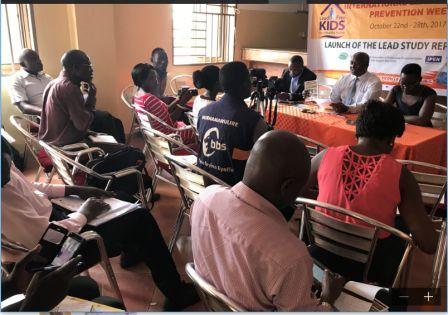Chemicals Management
Modern living has brought humanity to rely on chemicals in their daily living. Indeed, chemicals are a necessary evil.
The National Environment Act defines a chemical as substance in any form whether by itself or in a mixture or preparation whether manufactured or derived from nature and for purposes of the Act, chemicals include industrial chemicals, pesticides, fertilizers and drugs. Like in any other African country, many of the chemicals are freely available on the market in Uganda. Chemicals are widely used in agriculture, health, beauty and food. As chemical use, handling, manufacture, import and export, storage and disposal increase, chemicals risks are increasingly becoming an issue of concern.
Chemicals present both known and unknown risks. Some chemicals, including heavy metals, persistent organic pollutants (POPs) and poly-chlorinated biphenyls (PCBs), present known risks. Lead and mercury, for example, have serious and irreversible impacts on the mental development of children. Over the past half-century, there has been an accelerated release of artificial chemicals into the environment, many of which persistent and transform into bi-products whose behaviors, synergies and impacts are not well-known. New research indicates that many chemicals widely in use, including in household and personal care products, that are assumed to be safe by consumers, pose significant threats to people and biodiversity (WWF 2004). As chemical production increases globally, there is an increasing threat to the environment and human health (WWF 2004)
Chemical usage in Uganda
Like in other parts of the world, chemicals in Uganda are used for various purposes in agriculture, health, transport and industry. All chemicals are toxic depending on the dose and susceptibility of the exposed subject and therefore dangerous to society and the environment. In Uganda, reports have been common in the local press of people dying after consuming food (chapatti, cassava) fried mistakenly in hair-do oils instead of cooking oil. People have mistakenly cooked maize seed chemically treated with preservatives and have died as a result. People (especially children) have mistakenly drunk insecticide and died as a result. Other common cases include diazinon and dithane poisoning. These deaths are unnecessary as they are avoidable. Each death is a signal that the Government and civil society organisations should intervene with a solution to arrest this trend urgently. The majority of the population in Uganda is not conscious about the dangers of chemicals. Consequently, they neither have respect for them nor knowledge of how to handle them appropriately. This is mainly attributed to, Lack or limited awareness about the use of chemicals and risks of Chemicals, No effective control of transboundary Chemicals movement, No stop centre for Chemicals information and Data among others.
The National Association of professional environmentalists (NAPE) for many years now, has organized a number of campaigns at local, national and international levels geared towards sound management of chemicals for different sectors including campaigns against on Agro chemical use, mercury use in artisanal and small-scale miners and in dental amalgam, chemicals in consumer products like cosmetics, industrial chemicals and waste management including spirited campaigns on plastics most especially kaveera. NAPE has gone to propose alternatives and engage with different stakeholders through capacity building on the uptake of some of the alternatives.
NAPE calls on everyone to play their part in ensuring sound management of chemicals and wastes in Uganda as well as being conscious consumers bearing in mind that consumer protection begins with you, so mind what you use in day today life.






